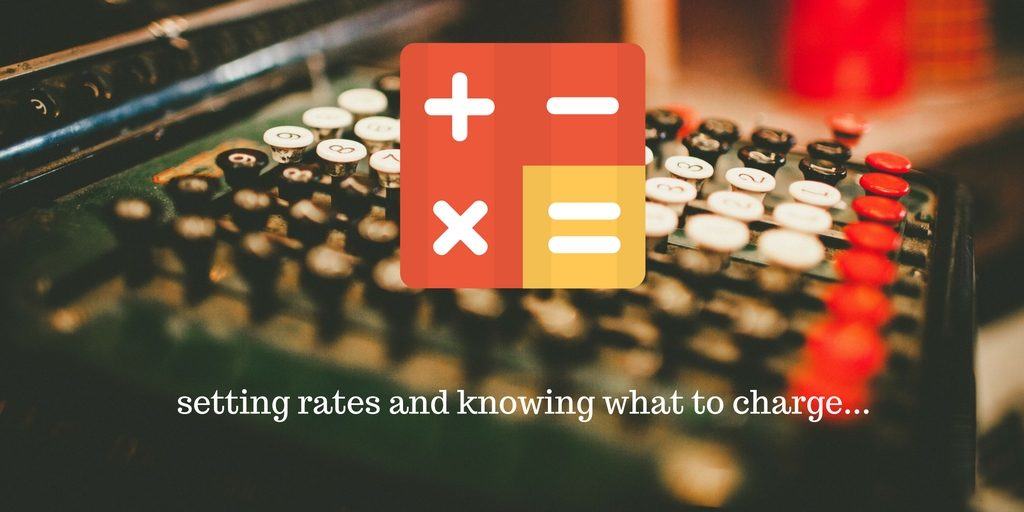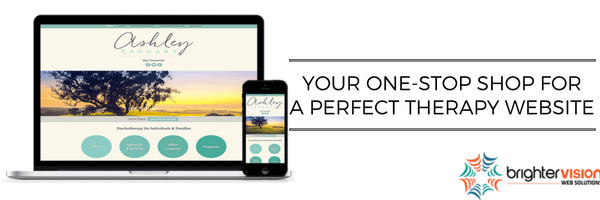 One of the many decisions anyone going into or growing their private practice as a therapist or counselor needs to think about is how to set your fees and session rates. Your per session rate has profound effect on your success as a business and the ROI (return on investment) of your time, knowledge and talent as a therapist. After all, you have invested years into education and training to become a counselor and you should be paid a fair rate for your expertise, time and effort with clients.
One of the many decisions anyone going into or growing their private practice as a therapist or counselor needs to think about is how to set your fees and session rates. Your per session rate has profound effect on your success as a business and the ROI (return on investment) of your time, knowledge and talent as a therapist. After all, you have invested years into education and training to become a counselor and you should be paid a fair rate for your expertise, time and effort with clients.
I recently attended a wonderful conference in Asheville, NC, “Brew Your Practice”, hosted by Joe Sanok, Jane Carter and Alison Salmon Puryear. One of the most valuable breakout sessions was on setting our fees as therapists. The focus of the session was not so much about how to set fees as it was about our relationship with money and our mindset about fees. The session also focused on being able to work through some of the stigmas we have about our fees as counselors and therapists. And what most of us at the conference realized and wrestled with is that we really were not charging enough or in proportion to our value as therapists and counselors.
So one exercise I think is helpful to do from the beginning is to look at how you tend to think about money. Most of us grew up with different messages about money. Things like, “never waste money”; “be thrifty”; “money doesn’t grow on trees!”; “look for the bargains”; “buy it on sale”, etc. In many ways, the messages and mindsets that many of us have been given about money are centered around the idea that money is scarce and that “you only get what you deserve” or earn. Our mindsets can sometimes undermine us into thinking we only deserve to have a minimum amount.
The truth is, as a profession, mental health practitioners do tend to be underpaid for the level education and expertise they possess. Fortunately though, I think that is changing as people become more and more aware of what we provide and offer in the helping field.
So what are you worth?
In setting fees, I think it is helpful to “work backwards”. The place that makes sense to start is to first look at where you need to be financially to have a comfortable salary and cover your expenses (overhead).
Assume you want to make $50,000 salary a year. So let’s start with that figure and work backwards.
$50,000 ÷ 52 weeks = $961.54 income per week needed.
But you would probably want to take some vacation time in there. So let’s divide by 48 weeks of course which gives you four weeks off.
$1041.00 income per week needed.
So, you also need to think about overhead or expenses. Here are some hypothetical monthly expenses to think about:
- Rent $500
- Phone, Internet, and Electric $200
- Advertising $100
- Insurance, Licensing, etc. $130
- Other office expense $300
- Self-Employment Tax (15.3%) $637
Total Monthly Expenses $1867.00 x 12 = $22,404.00 yearly expense.
What this means is that you will need to bring in a total of $72,404.00 (gross income) to have a salary (take home pay or net income) of $50,000.00.
How this translates into session rates
$72,404.00 divided by 48 weeks is $1508.42 per needed. Say you set a session rate of $100 per session. You would need to have around 15 sessions per week ($1508.42 divided by $100). So in this example in order to make $50,000.00 a year you would need to charge:
$150 per session and have 10 sessions per week, or
$90 per session and have 17 sessions per week, or
$70 per session and have 22 sessions per week
As you can see, the more you charge the fewer number of sessions it takes to meet your targeted income.. And conversely, the more sessions you have the more you will bring in regardless of what you charge.
Take your local economy into consideration
What you charge per session can also be influenced by your local standards of living and economy. For example, a person with a counseling practice in a large metropolitan area like, New York or Los Angeles, would have rates in proportion to the standards of living there. Charging $200 to $300 per session would most likely be reasonable given the cost of living those areas. Whereas the cost of living here in Tennessee, where I live, is much different than the cost of living in those huge metropolitan areas. Charging $100 per session would be proportionally the same given the cost of living and economics this area of the country.
Overall, to know how to set your fees you need to be able to look at the big picture and what you need to cover your expenses and make a profit. Do your research. Find out what your actual expenses will be. Also keep in mind where you need to be financially. Then set your fees based on the cost of doing business, what the market will bare along with knowing what you need to make in order to be profitable and stay in practice.
By doing these things, you can make your private practice as a counselor or therapist successful, profitable and sustainable over time.
 By L. Gordon Brewer, Jr., MEd. LMFT – Gordon is the President and Founder of Kingsport Counseling Associates, PLLC. He is also a consultant and business mentor at The Practice of Therapy. Follow us on Twitter @therapistlearn. Join the Facebook Group.
By L. Gordon Brewer, Jr., MEd. LMFT – Gordon is the President and Founder of Kingsport Counseling Associates, PLLC. He is also a consultant and business mentor at The Practice of Therapy. Follow us on Twitter @therapistlearn. Join the Facebook Group.

